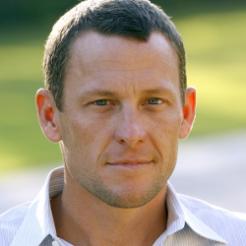With the Jimmy Savile and Lance Armstrong scandals of late, Niki May Young questions whether celebrity endorsements are more trouble than they're worth.
Good old Jimmy Savile huh! Good old charitable Jimmy Savile, doing his good deeds for society in a larger-than-life pursuit of heroism, all the while - it now appears undeniable - defacating on society with the weakest of morals and abusing young girls in a life-long campaign of depravity.
And Livestrong Lance, how we held him in the highest possible regard, only to have him slip ungraciously from the pedestal and crash-land with the now confirmed doping scandal in which he dragged down his teammates.
What about cuddly funnyman Justin Lee Collins, who was this week found guilty of harassing his partner with sustained acts of degradation.
How did we get it all so wrong?
Celebrities often complain about the invasion of their privacy, with paparazzi camped on their doorsteps and magazines revelling in every cellulite-studded thigh they can publish. We feel sorry for them, sometimes. But it's easy to forget, when it seems that some celebrities are never out of the papers, that the very nature of celebrity offers the worst kind of protection. Present yourself as a saint, be likeable, do some charity work, and in the eyes of most, your saintliness will be undeniable. Until it's not.
It's understandable that charities fall for the act, the entire public does! But for the charity that has been sucked in, and the fundraising teams that have tirelessly campaigned for the support of the previously infallible celebrity, the fall can be costly. Through no direct fault of the charity, it is now seen through a negative lens by association. And decisions must be made.
Disgraced founders
In the case of Jimmy Savile and Lance Armstrong, it is very difficult for the charities they are involved with to disassociate themselves from the scandals, because the people involved are the founders.
I feel for the trustees of Savile's two charities, the Jimmy Savile Charitable Trust and the Jimmy Savile Stoke Mandeville Hospital Trust, who are now considering the future of the charities. When whisperings of the documentary which outed Savile as someone who abused young girls were first heard, they spoke of the Jimmy Savile they knew and initially defended their patriarch. After viewing the documentary they were forced to admit that there was something to be investigated, and are now left with a predicament of whether to rebrand or close the charities.
The treatment of Armstrong's scandal by the charity he founded has so far been one of outright denial. Turning the table on the United States Anti-Doping Agency that produced the damning report into Armstrong's actions, the president and CEO of the Lance Armstrong Foundation said on Wednesday (10 October): "Our longstanding concerns about the impartiality and fairness of USADA's proceeding are compounded today. As a federal judge pointed out, USADA appears motivated more by publicity rather than fulfilling its mission."
The reaction of Armstrong's charity is despite compounding evidence from what Bradley Wiggins has called a "jaw-dropping amount of people", including Armstrong's own teammates. While not directly comparable with the deeds of Savile, Armstrong's acts nonetheless present the picture of at the very least, an untrustworthy man with lax morals. I fear the charity will suffer from this reputational hit, despite all of the good that it has achieved to date.
So that's how a charity centred around a deceased man, and one launched by a living survivor, have treated the reputational hits. But what about a charity which is only endorsed by and not launched by a shamed celebrity? Justin Lee Collins is reportedly the patron of Bristol Kids, a charity launched by radio station Heart Bristol. What should it do? I would suggest that it swiftly disassociates itself from Collins, and says its goodbyes. It will likely be forgiven by the public for not being more shrewd than the average Joe. But in some cases, does the association not linger?
These three stories are by no means rare. It's true that celebrities have a powerful voice, and the ability to influence for good. But when charities entrust their reputation in patrons, they run the risk of taking some of the flack when they are 'found out'. And how much resource is wasted throughout the relationship... courting them in the first place, the press hours spent in the aftermath, the tech-time trawling through the website to ensure the celebrity no longer appears, and the search for someone new. According to YouGov three-quarters of the largest charities in the UK, excluding care and housing trusts, have a full-time employee to handle celebrity relationships. When the sector is constantly under pressure to maintain public trust and confidence, the question I ask is: Is it all worth it?








